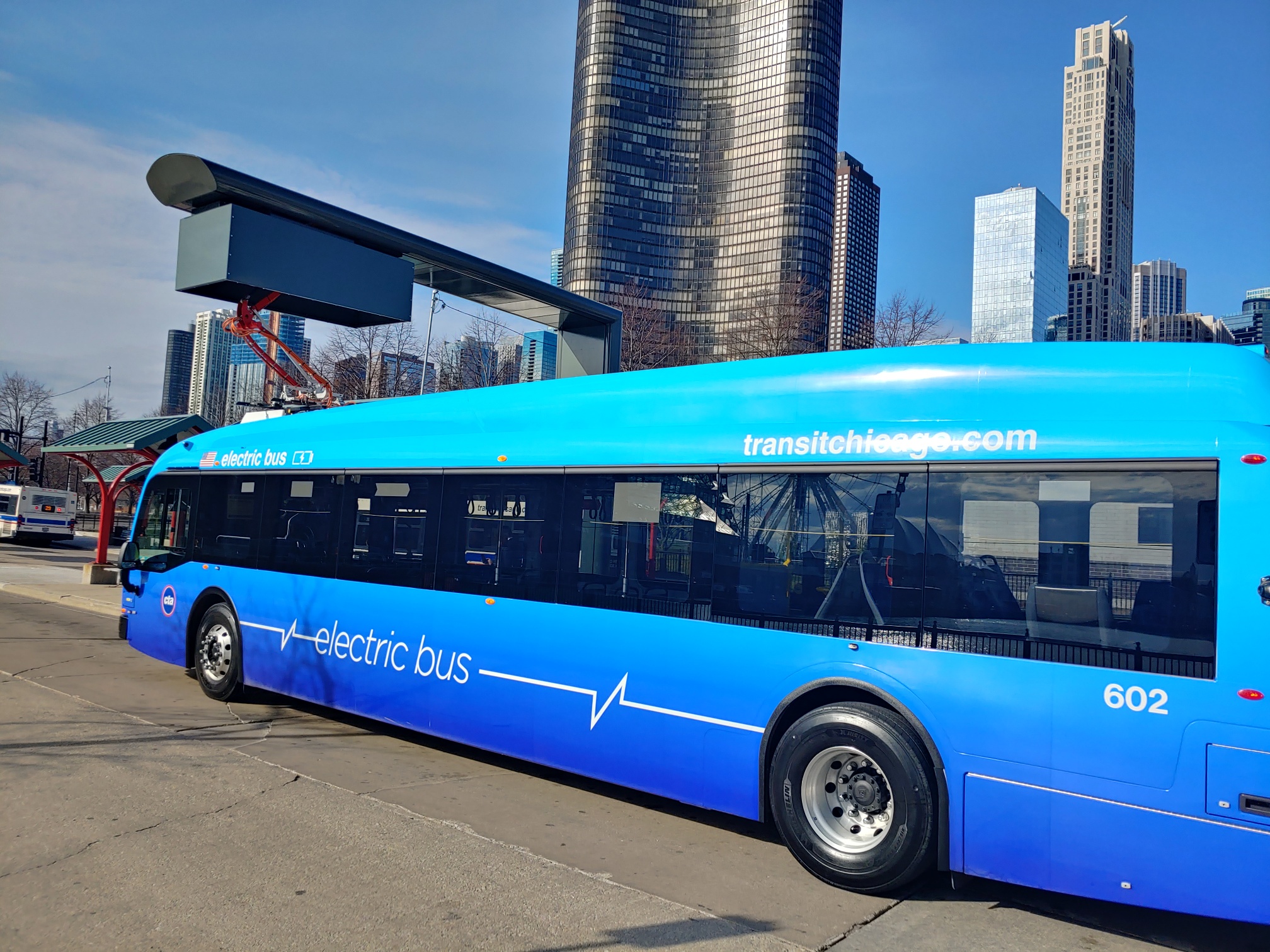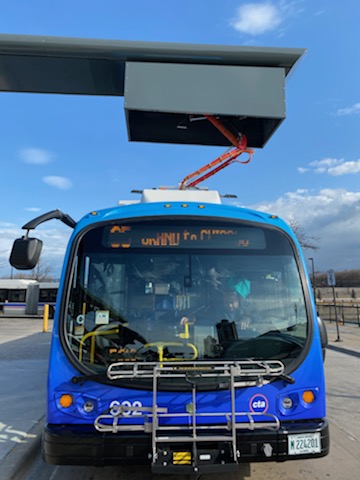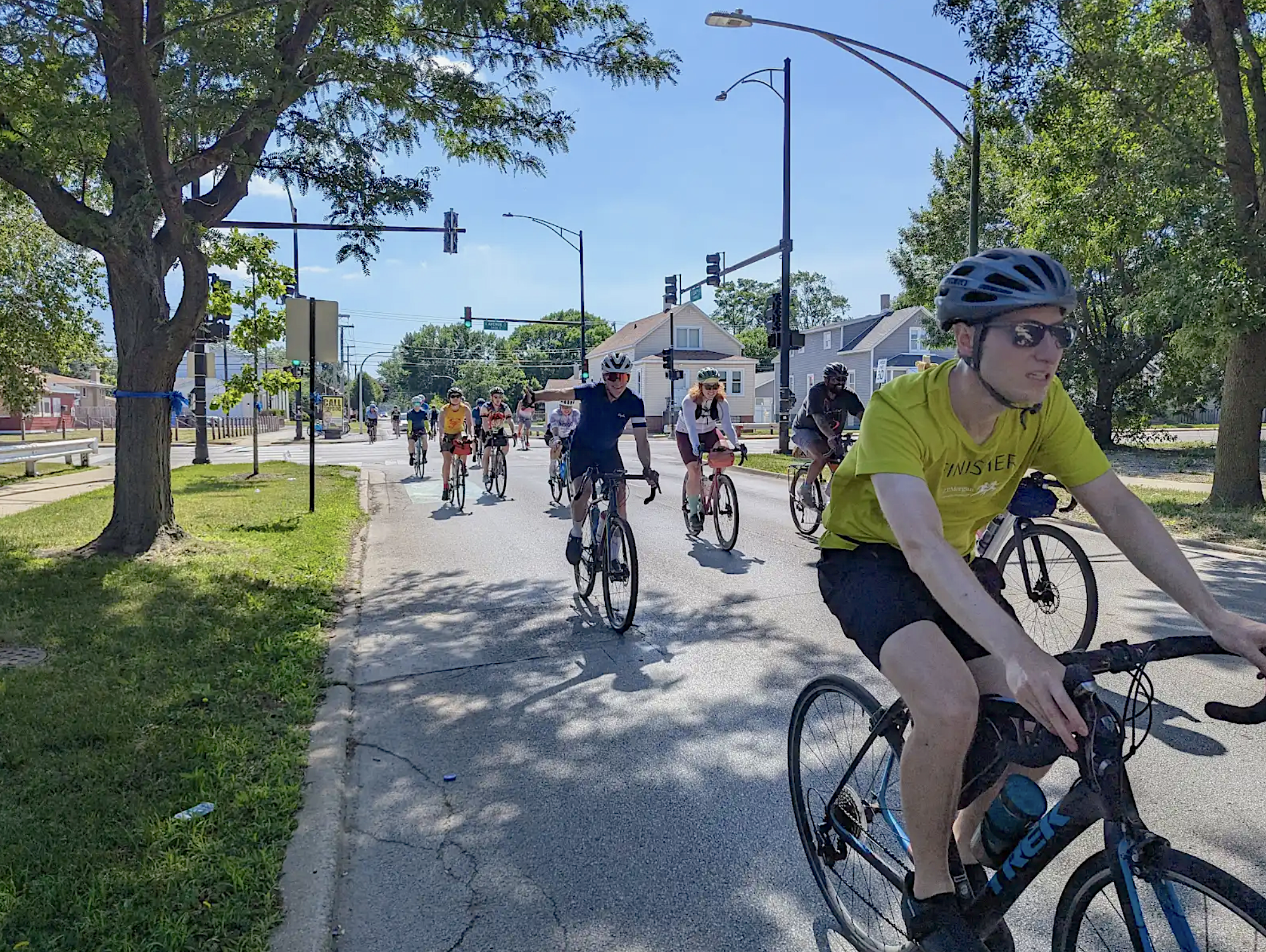In February the CTA board approved the purchase of up to 600 so-called “clean diesel” buses, which the CTA says will reduce maintenance costs and offer new safety features and perks for passengers.
Last Wednesday, President Joe Biden announced the American Jobs Plan, an eight-year, $2 trillion infrastructure spending proposal, with $174 billion for vehicle electrification, including an earmark for 50,000 public transit buses. That would help the CTA meet its target of having an all-electric fleet by 2040.
There was more good news about the CTA modernizing its rolling stock today, as the agency announced that six prototype electric buses have begun in-service testing with passengers. During this pilot period, the vehicles will run on the #66 Chicago Avenue route, which recently got pop-up bus lanes on a 4.6-mile stretch between Ashland and Laramie avenues. Assuming the new buses make the grade, the CTA will green-light the production of another 17 e-buses.
“The introduction of these new electric buses is just one example of how the CTA is committed to adding more green vehicles, addressing climate change and being more environmentally conscious,” said CTA President Dorval R. Carter, Jr. in a statement. “Once these prototype vehicles pass the testing phase and we purchase additional electric buses, CTA will be one step closer to its goal of having a 100-percent electric fleet.”
The CTA has a contract with manufacturer Proterra to buy a total of 23 non-articulated 40-foot-long e-buses at about $900,000 a pop. Proterra has built e-buses for over 60 transit agencies, universities and businesses across the U.S.
As part of this purchase, the CTA has also installed five electric quick-charging stations at the Navy Pier and Chicago/Austin bus turnarounds, as well as the Chicago Avenue garage, located at 642 N. Pulaski Rd.. These overhead, cantilever-style chargers let buses juice up while on route, allowing the vehicles to return to service quickly. Electric buses can run between 75 and 120 miles on a charge.
The CTA says that in addition to providing smog-free service, which will contribute to cleaner air and better respiratory health for citizens, the e-buses will save the agency money on fuel and maintenance. Customers will get a smoother, quieter ride, "producing noise levels equivalent to a human conversation," plus new overhead passenger information screens to show real-time travel information and other service information. The CTA's news release didn't mention whether these screens will display ads.
After the last 17 buses arrive, probably later this spring, the CTA says it will have one of the largest electric bus fleets in the country, which isn't saying much. In contrast to Chicago's less-than-two-dozen buses, Shenzhen, China, a city with over four times the population and more than eight times as many municipal buses (16,000 versus 1,864) has already electrified its entire fleet.
The CTA first tested two e-buses in 2014, which the agency says made it the first in the country to use all-electric-powered buses for regular scheduled service. Since both electric buses performed satisfactorily, including dealing with Chicago's sometimes-challenging climate, the CTA decided to expand the initiative.
In addition to the new e-buses and "clean diesel" vehicles, the CTA says other green initiatives include the use of hybrid (electric-clean diesel) buses; the ongoing conversion to more energy-efficient lighting, such as LED or solar powered lights in vehicles and facilities; and recycling of customer and employee refuse and vehicle materials like plastics, metals, oil, lubricants, anti-freeze and batteries.







